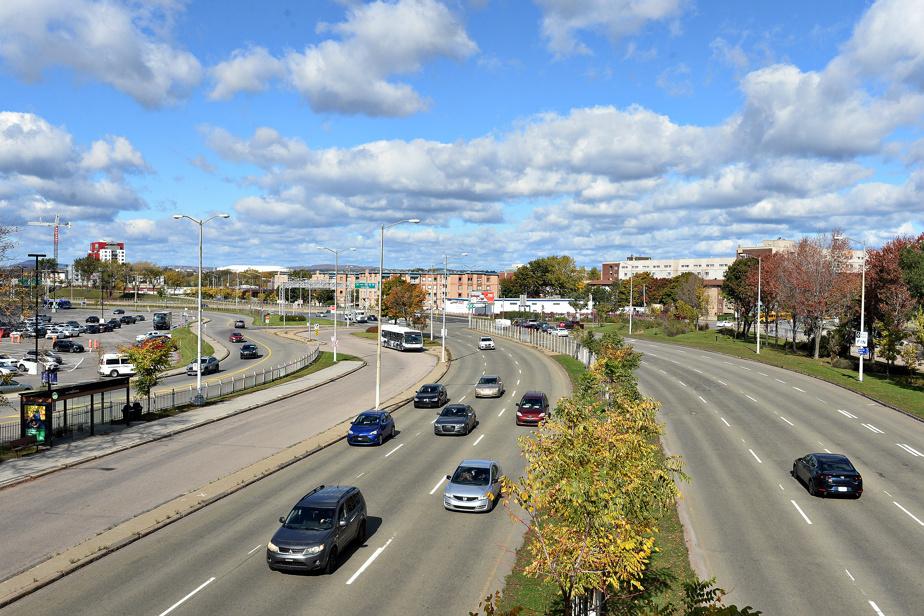Built for a promise |The press
Imagine a government that prepares the most expensive infrastructure project of its generation.
Publié le 5 nov. 2021He promises to build it, regardless of the cost, regardless of usefulness, regardless of the environmental impact.
Insane, isn't it?
However, this is what the Caquist government does with the third link between Quebec and Lévis.
Even if the invoice had to double, it will.
Even if the experts assess that road congestion will not decrease in the long term, it will.
Even if environmental studies are critical, it will also.
I go back in history, I'm looking for similar cases, and I can't find it.
François Legault had launched the promise during the last electoral campaign.The cost was then evaluated at 4 billion.The new estimate, included costs included, is 9.7 billion.And the invoice should increase, because the opportunity study has not even been filed yet.
It is enormous.
For comparison, the Roman hydroelectric complex will cost 7.2 billion, and its power plants will feed the equivalent of 470,000 residences.Another example: the plan to green the economy of all of Quebec provides for a budget of 6.7 billion over five years.
Alone, the third link will cost more.Of how much ?The CAQ ignores it, and that does not concern it.She does not impose any ceiling!
However, dollars are carefully counted for more ecological projects such as the Quebec tramway and the extension of the metro in Montreal.
All this for what ?We don't know ...
According to Quebec, the third link could reduce the duration of the journey from a modest 15 %, for its 55,000 users.This study remains confidential.If it was reliable, the government would not be shy to reveal it ...
Experts are skeptical.All experts, in fact.None support the project.

I repeat: what could become the biggest project in contemporary Quebec is not supported by any urban planning or transport planning expert.
Barely 2.3 % of the residents of the National Capital spend more than an hour a day in their car.For 20 years, traffic has increased very little on the Pierre-Laporte bridge (1.1 %) and the Quebec Pont.And the active population on the South Shore will decrease by 2040.
It is not a question of repairing an existing section, as in the case of the old Champlain bridge.We add to the road capacity.However, the Quebec agglomeration is among those that have the most kilometers of highway per capita in the country, and the least public transport.
This is what justifies according to François Legault to dig under the river this two -story juggernaut, four of the six lanes of which will be for cars.It will require the biggest tunnel boring in the world.All this to reduce congestion temporarily, before it returns to normal in the long term because of "induced traffic".
LISEZune entrevue sur le trafic induit (Université Laval)What about the environment?
The minister who is responsible for it, Benoit Charette, explained at the start of the mandate that he did not need to study to conclude that the project would be "green".
Its argument: vehicles will be electric.This is not serious.First, petrol vehicles will continue to be sold until 2034 and some will still drive after 2040.
Then, even if all the models became electric tomorrow, there would still be a problem of urban sprawl, loss of agricultural areas and destruction of wetlands, destruction that the CAQ has also facilitated by weakening the regulations.
This helps to understand Ottawa's approach.
The Federal Minister of the Environment, Steven Guilbeault, wants to carry out his own study.
The new law on assessments, in force since 2019, gives it this power.Ottawa used it for a motorway project in Ontario, and he wants to do it too for the third link.
In the eyes of François Legault, it would be an attack on the nation.However, the federal study would rape wider.It would assess the impact of the road on the climate and the ecosystems of the region.The Quebec Center for Environmental Law therefore claimed it.
I know, the centralizing government of Justin Trudeau often interferes without embarrassment in the skills of Quebec.But in this case, it's different.
The environment is a shared competence.In addition, he is asked to sign a check of around 4 billion.And this, drawing from an envelope intended for green infrastructure.This means that the money going to the third link would reduce the sums available for public transport elsewhere in the country.
At COP26, M.Legault invites us not to be "ecoanxious".Let's be "proud", he says, praising the Quebec record, the best in North America.According to him, Quebec does "its share".
Whether or not we agree with M.Legault, this does not change the problem: the climate crisis already causes costs because of the erosion of the banks, the foundations of the houses that crack, submerged roads, floods, the melting of pergélisol or even heat waves thatoverwhelm.The annual bill could exceed 1 billion per year.
LISEZle rapport du Bureau de projet des changements climatiquesDÉCOUVREZ le rapport de l’Union des municipalités du QuébecCONSULTEZle rapport de l'Institut canadien pour des choix climatiquesEven if Quebec did not want to do anything more against warming, from a strictly selfish point of view, it would be paying to invest in prevention to minimize this damage.
As for congestion in the national capital, less expensive solutions undoubtedly exist to unclog roads and improve public transport.
The money engulfed in this pharaonic project would be better than renovating schools, building residences for seniors or alleviating the effects of warming.
The big flaw of the third link, it is there: in the cost of opportunity.
I cannot believe that this government government ignores it.










10 Ways to Stay Safe When You Live Alone
How to draw a rose: our methods
Hotels, restaurants: tips paid by credit card will soon be tax-exempt
"I was a rot in the evening and a good cop in the morning": meeting with "Haurus", the thug policeman of the DGSI